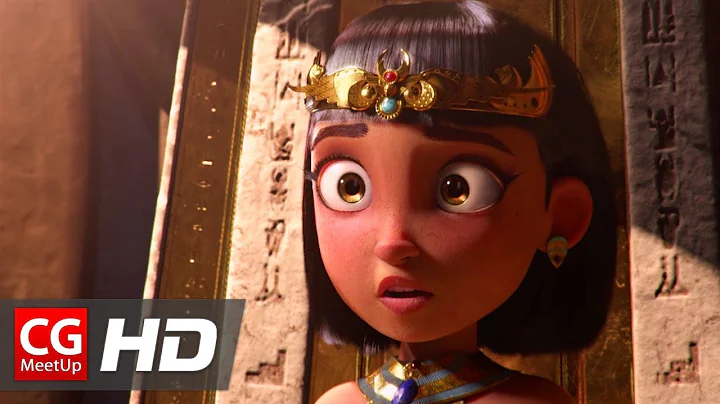Introduction
Egypt's nominal dominance continued until near the end of the period of the Judges. However, according to the Amarna Tablets, the pharaohs of the past generations did not interfere with the local religion here, and they rarely exercised effective political power here after Ramses II. Yet the possibility of spiritual communication exists as always.
In the time of Sesotris, among the semi-Bedouin rulers of the area east of Barbilos, there was an Egyptian wise man whose reputation spread far and wide, or at least the author of the Sinuheh story can assume this possibility. By the time of the complete collapse of the Ramesses dynasty (about the 11th century BC), the city monarchs of Babilos knew nothing about Amun in Egypt and the power conveyed by the messenger Wen Amun.

▲Ancient Egyptian murals
However, the palace prophet seemed to have heard about it to some extent: this may also explain the reason why one of them made an oracle in favor of the messenger. All in all, thanks to long-distance caravan trade, the people of southern Palestine were well-informed about Egypt. Solomon not only adopted chariot technology, but also apparently partially copied the architectural style of the Egyptian temple (the so-called "Holy of the Holy Place"). The legend of Joseph especially shows a detailed knowledge of Egyptian affairs, and also hints at ( Whether justified or not) and the relationship between the priestly class of the temple at Heliopolis, the chief capital of Egyptian intelligence.
King Babilus thanked Vin Ammon and said that all the teachings and skills of the Egyptians had come to Phoenicia. A legend about Moses also makes him the bearer of Egyptian wisdom. According to the legend of Joshua, circumcision was introduced from Egypt directly, not via Phoenicia. We can find broader clues from many details, but firstly, we are not interested in these details here, and secondly, they will be prompted where appropriate. Meneptah of Egypt (1213-1204 BC) mentioned his army's campaigns in Palestine against Israel.

▲ "Desert Flower" stills
But the relationship between them is not always so unfriendly, which can be confirmed by the following facts. In addition to the Edomites with tribal kinship, the Egyptians were also later explicitly qualified to join the community of Israel. Although the legend is not entirely correct, the premise is that the characteristics of the patriarchs as livestock herders, in Egypt Considered "impure". mentioned earlier that excavations in Palestine unearthed a large number of scarabs, which, according to Elman, "are as symbolic to the Egyptians as the cross is to Christianity." In view of all the above, one of the most eye-catching facts is that in the overall legend, the dominance of Egypt has been completely buried in silence, and the unique elements of Egypt, especially in the ancient foundation of Israelite religion, are completely missing. Although, as we will see, later this Egyptian influence also showed its signs.
This kind of silence, Meier believes, can only be explained from the recent age of the Israelite legend. However, Israeli legends sometimes retain some extremely ancient features, such as their ancient relationship with Mesopotamia. This silence about political domination may be explained by this: even from the perspective of Chabiru and SaGaz as early as the Amarna era, the domination of the pharaohs was actually of no consequence at all, because the pharaohs only maintained relations with the vassal governors they appointed . In addition to a handful of predatory attacks in , this is even more true later. However, this silent response to Egyptian culture can be fully explained by the absolute and conscious rejection of the believers in Yahweh. The Egyptian servile state was rejected, and its defining features, especially those adopted by the native monarchy, were deeply resented by the demilitarized classes.

▲Egyptian Pharaoh
Also rejected was the most characteristic part of Egyptian belief: the worship of the dead.Apart from the radical this-worldliness of the Old Alliance god of war and his purely earthly orientation, the decisive point, as we have seen, is that although Yahweh combined different attributes at different times, he never He was never an underworld god, and was often in extreme opposition to this divinity and its particular form of worship. In addition, the Egyptian holy scriptures and Egyptian priestly knowledge are generally not accessible to outsiders. The wise teachers of Egypt, Ptah and Tep, did indeed advise the people to educate as in Deuteronomy, but they obviously excluded the inherent esoteric traditions of the priests, and the teachers in Israel either knew nothing about it, or did not know it at all. I don’t want to know.
The same is true for the Egyptians. As elsewhere, the defeated enemy was bound to honor the gods of the victorious Egyptians. Yet they do not therefore become Egyptians. According to the inscriptions, there were temples of Egyptian gods in Syria, and there were temples of Syrian gods in Egypt under the Ramses dynasty. However, the basic relationships firmly rooted in the social characteristics of Egyptian secretarial culture have not changed at all. Only as an individual can it be possible for an individual to integrate into Egypt's education and intelligence, and this means completely giving up one's spiritual independence. For the people as a whole, this is nothing more than asking them to accept the hateful secretarial bureaucracy. There is also Egyptian animal worship - the Egyptian priests did not systematize it until later for the theocratic control of the people. According to the only record of Ezekiel, it can be inferred that especially the obscene and horrific behavior is rejected by the religious nature of Yahweh's faith. .

▲ Ancient Egyptian statues
This cannot in any way correspond to the relationship between free livestock herders and their livestock, and it is particularly different from the traditional characteristics of Jehovah. This rejection of all the defining characteristics of Egyptian culture merely proves a premise that we must accept as historical fact: independent and conscious spiritual bearers of the religion of Yahweh existed in Palestine, as legend has it. Confirmed, in the oases of Edom and Midian. Because, although Libya maintained stable trade relations with the Bedouin and Egyptians in Asia, and Palestine has been under the direct control of the Egyptians for a long time, the former accepted the religious characteristics of Egypt, while the latter, At least the Jehovah worshipers among them did not adopt one iota of it.
The inherent priestly doctrines of Egypt, especially the speculative theology that had developed in the third millennium - originally highly naturalistic and later pantheistic thinking - had always been completely foreign to the Levitical believers in Yahweh. of. On the contrary, we find considerable clues of affinity in the beliefs and religious ethics of the common people. The relationship between and Mesopotamian spiritual culture is more complicated. During Amarna's time, cuneiform and Babylonian diplomatic and commercial terms were common throughout the Near East and understood by learned Egyptians. As the Song of Deborah shows, star spirits and their intervention in earthly affairs were also concepts familiar to Israel.

▲Ancient Mesopotamian city ruins
Apparently even Nebo, the god of scribes, had a sanctuary. Various individual signs tell the story of ancient spiritual commonality and mutual inspiration. Not least the common weights of weights, measures, and coinage, and even important parts of the law and cosmological mythology were shared. This close relationship seems to have naturally changed with the rise of the Phoenicians to commercial supremacy in Homer's time. Many ancient Mediterranean peoples such as maritime trade, pirates, mercenaries, etc. that appear in Egyptian inscriptions were, at least relatively speaking, relegated to the background due to the Phoenicians' maritime dominance; large-scale ethnic migrations also played a role in fueling the flames. Phoenician phonetic writing drove out cuneiform writing in Palestine at that time, and the importance of Babylonian gradually declined and finally gave way to Aramaic (Aramaic).
Winkler specifically points out that Babylonian was a familiar language in Syria even in the 9th century BC and even into the 7th century BC.It was during the Persian era that Aramaic achieved its final importance as the common diplomatic language of the Near East. In short, Babylon was silent for a long time. Phoenician royal craftsmen worked in Solomon's temple, and Phoenician slave traders traveled with the Israelite army to buy and sell captives. Phoenician Baal worship, Molech worship, and Astarte worship also flowed into Palestine.

▲Dark-skinned race
The cosmogenesis theory spread in Palestine, in the opinion of experts, has an essentially Phoenician imprint. Some individual Israelite tribes submitted themselves to Phoenician rule, while others shipped labor to Phoenician ports. The Phoenician royal Nabi received favorable treatment in northern Israel. Phoenician ritual worship was not destroyed until the revolutions of Elijah and Jehu.
Conclusion
The ancient selfless Nabi was expelled by the Puritans. Phoenician human sacrifice and its gnostic sanctification to Molech were strictly tabooed by the prohibitions of Deuteronomy and the sacred code.





















